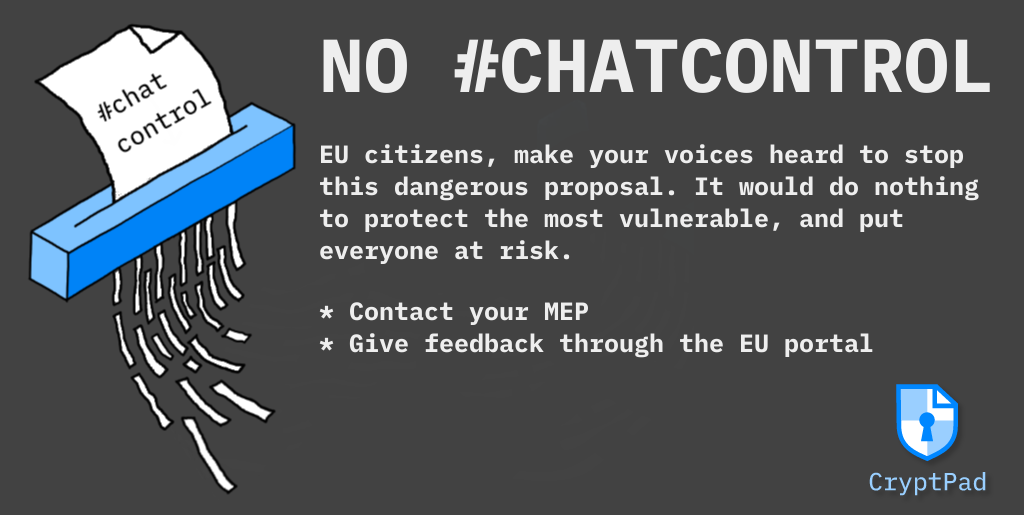What you can do: https://www.patrick-breyer.de/en/posts/messaging-and-chat-control/#WhatYouCanDo
Contact your MEP: https://www.europarl.europa.eu/meps/en/home
So first it's client-side scanning for CSAM. Not without some nobility. But the problem is once you wedge open that door it's technically possible to do it for other things and so you become compelled to.
It'll move from just CSAM to stopping and tracking "propaganda" as deemed by them which will be narrow-ish at first (anything pro-Russia, RT links, etc) but gradually expand over time to anything outside the mainstream branded as extremist (and guess what, privacy advocates will definitely fall within that label). And once that's in place the private stake-holders, copyright holders will come knocking, they'll say rightly so "hey you have the capability right now, we demand you implement client-side scanning to detect copyright violations" and then that will be ordered by a court, further enshrined by a law and oh look now you can no longer send political thought that the ruling regime disagrees with, can no longer surf the high seas, and so on and so forth. Congratulations and please enjoy living in the "garden" of Europe.
The US uses the Patriot Act to spy on innocent people under the guise of terrorism. Once you open the door, they knock the wall down.
It's somewhat amusing how western liberals once touted freedom of speech as a defining characteristic separating them from states like China, which impose stricter limitations on freedom of expression. The argument was made that the pursuit of personal liberties is what sets western liberal culture apart and makes it superior to others.
However, this narrative succeeded primarily due to broad public agreement within mainstream Western society. When economic conditions were favorable and people generally content with their system, there was little reason to suppress dissenting views. In fact, allowing such opinions on the fringe even served to reinforce the narrative. But now that growing discontent is causing this illusion of freedom they once believed in to unravel.
Regarding email which provider would be best suited if this goes true? Because Tuta is hosted in Germany it seems less optimal then say Proton?
If I cared about the contents of email staying safe, would rather not depend on a provider and just use provider-independent PGP. If safety is more important than universality - then I'd use something outside of email in general, like XMPP+OMEMO or maybe Simplex.






